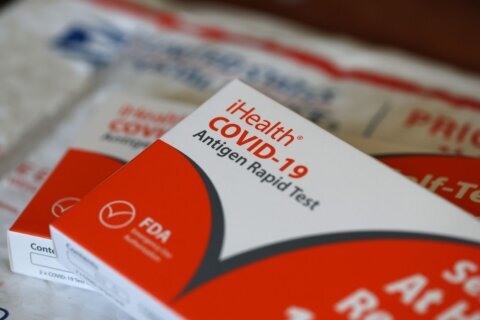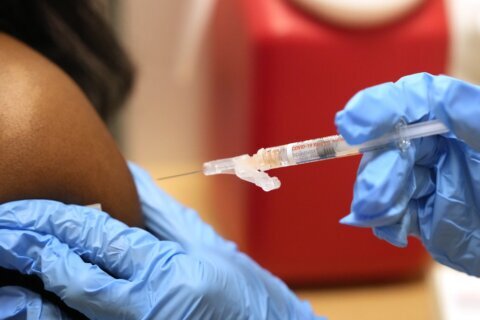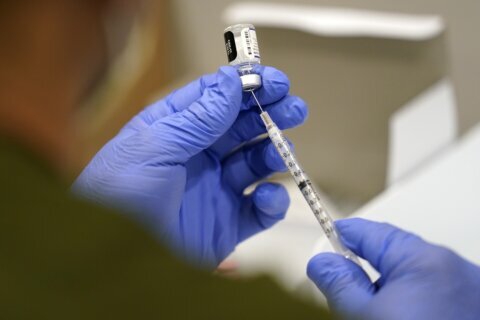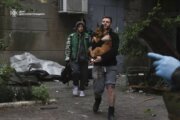▶ Watch Video: Coronavirus vaccine shortages as U.S. sees 2nd deadliest day of pandemic
While nearly 20 million doses of COVID-19 vaccines sit in freezers across the country, health officials in many states say they don’t have enough of the vaccine. So far, about 17.5 million Americans have had at least one COVID-19 shot.
New York City closed 15 vaccine centers and canceled 23,000 appointments on Thursday. “We are running out of vaccine and we need more now,” Mayor Bill de Blasio said.
“It’s deeply disheartening and honestly, it does create a little sense of panic,” said Rivka Press Schwartz, a school administrator.
The setback comes as stadiums and other large venues continue to transform into vaccine mega-sites. Detroit Mayor Mike Duggan said the vaccination site set up at his city’s convention center parking structure can handle 25,000 vaccinations a week but “right now we’re scheduling 6,000.”
At Dodger Stadium in Los Angeles, wait times for scheduled vaccines are reaching five hours. California health officials are saying the state may not vaccinate all of its high-risk, high-priority seniors over 65 until June.
President Joe Biden on Thursday signed 10 executive orders as part of his national strategy to combat COVID-19 while warning Americans that the pandemic, which has already claimed more than 408,000 American lives, is certain to get worse.
Without clear federal guidelines, states and cities have had to craft their own COVID-19 responses — a rocky process marked by the vaccine delays and canceled appointments.
Biden aides concede they are unlikely to meet their goal of 100 million vaccines in his first 100 days unless Congress provides another booster shot. The new administration is pushing a $1.9 trillion package with funding to build community vaccination centers around the country and to hire 100,000 public health workers.
Some state officials told CBS News they have already seen more outreach from the federal government just in the past 24 hours of this new administration, including offers of help from the Federal Emergency Management Agency to set up and staff mass vaccination sites.
There are also growing concerns about new strains of the virus, especially one first detected in South Africa, which could be somewhat resistant to the current vaccines. One researcher in South Africa told CBS News the strain is “almost like a new pandemic” and may require recalibrating the vaccines, which is done with annual flu shots.
Hospitalizations in the U.S. continue to be at peak levels. On Wednesday, the U.S. had its second-highest daily deaths recorded, with nearly 4,400 dying in just one day — almost matching Japan’s death toll during the entire pandemic.
Yet, as slow as the vaccine rollout may be, it is having an impact. Thursday morning, 93-year-old Irving Levine received his first dose. Levine survived the Holocaust but lost most of his family. His goal now is to be able to see his kids again. One of them is a doctor in New Jersey.
“His will to survive has been incredible,” said Dr. Selwyn Levine. “In some ways, I almost believe he’s more concerned about me and my sister because we are working on the front lines than he is about himself.”
Nancy Cordes contributed reporting.







